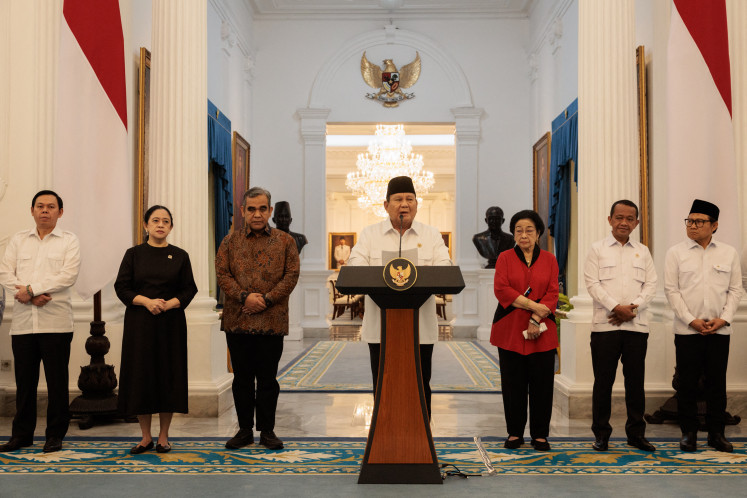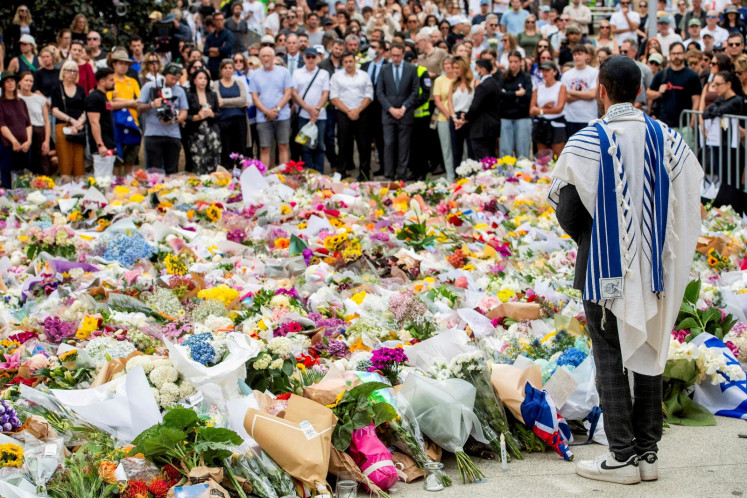Popular Reads
Top Results
Can't find what you're looking for?
View all search resultsPopular Reads
Top Results
Can't find what you're looking for?
View all search resultsReflecting on the Easter message with the women at Jesus’ tomb
The visit to Jesus’ tomb was a heroic act because Jesus’ death was a dramatic and tragic one.
Change text size
Gift Premium Articles
to Anyone
C
hristians will be celebrating Easter tomorrow amid various challenges in life in the post-COVID-19 pandemic era. For the past year, we bore witness to multiple humanitarian tragedies.
We still remember the brutal murder of Brig. Nofriansyah Yosua Hutabarat and the cruel death of a state civil servant in Semarang, Paulus Iwan Boedi Prasetijo. We are also concerned about the recent case of David Ozora’s assault, allegedly by Mario Dandy Satrio, the son of a well-off tax official, and his gang. These are some of the cases that have tainted our lives and have become public concerns involving life and death.
Amid this situation, let us reflect on a message of Easter from the women who went to Jesus’ tomb. Liturgically, the Easter Vigil celebration features a woman named Mary Magdalene and the other Mary (Matthew 28:1-10). They went to the tomb to honor the crucified body of Jesus, who died on the Friday before the Sabbath. In our Indonesian cultural tradition, this episode equals nyekar, a pilgrimage and flower offering at a grave.
The visit to Jesus’ tomb was a heroic act because Jesus’ death was a dramatic and tragic one. His death portrayed tremendous suffering through the cruel and savage crucifixion plot between Pilate and the Jewish leaders of that time. The dramatic suffering and tragic death happened unexpectedly and suddenly in the eyes of Jesus’ disciples, including the women. The way Jesus died in Golgotha that they witnessed was undoubtedly burdensome for their hearts.
They were also gripped by a mix of pain and fear. As followers of Jesus, they might have faced the same fate as their guru. They were afraid of the future with painful memories and shattered hopes. Jesus’ death became the darkest moment for them because they lost the light of their lives.
Nevertheless, the women did not allow themselves to be paralyzed. They did not give in to gloom, sadness, despair and regret. They did something simple yet extraordinary based on their love for Jesus. They prepared spices to sprinkle on Jesus’ body. In their grief, they did not stop loving Jesus. Even in the darkness of their hearts, they ignited the flame of mercy in prayer and hope.
The essence of Easter shines through the women’s lives, which is responding to sadness with faith in Jesus Christ, the Son of God. They made preparations in the darkness of the Sabbath to welcome the dawn of Easter on the first day of the week, the day that would change the history of life.



















